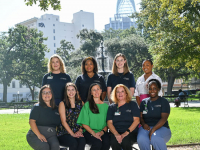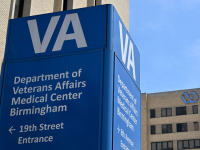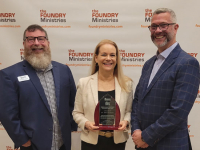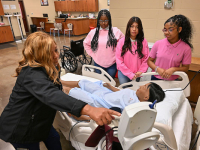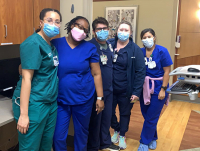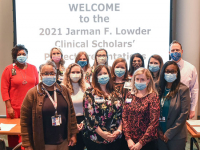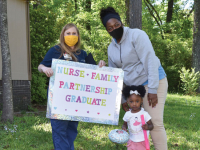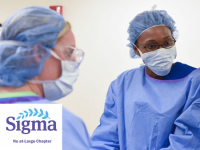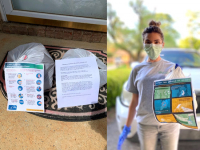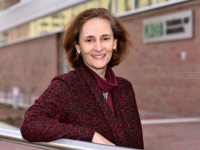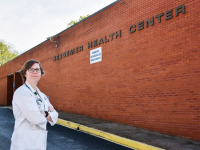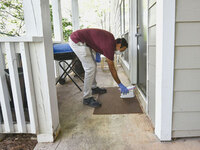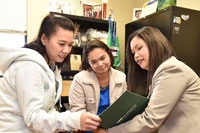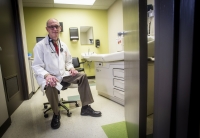
By Erica Techo
The University of Alabama at Birmingham School of Nursing Heart FailuRe Transitional Care Services for Adults (HRTSA) Clinic is continuing to provide necessary care to underserved patients with a diagnosis of heart failure during the novel coronavirus (COVID-19) pandemic.
While care looks slightly different because of COVID-19, the nurse-managed HRTSA Clinic continues to see patients in-person and through telehealth in order to provide guideline directed care and education to patients and their caregivers across the care continuum.
“It is important for our HRTSA patients to continue to receive care at our clinic to help maintain optimal health outcomes and minimize unnecessary emergency department visits, especially during the COVID-19 pandemic,” said HRTSA Clinic Senior Director and Associate Professor of Nursing Connie White-Williams, PhD, RN ,NE-BC, FAAN. “In order to continue care, while preventing the spread of COVID-19, we have incorporated social distancing into our clinical practices and continue to take all patients’ temperatures when they enter. Our clinic staff wear necessary protective equipment when seeing patients, and we have incorporated telehealth into some assessments.”
Nurse practitioners collaborate with an interprofessional team of providers to determine which type of appointment best fits a patient’s needs, with essential patients coming to the clinic. When possible, appointments are held via telehealth or through a telephone conversation.
In the clinic’s patient population, 87 percent do not have insurance, 40 percent have no income, 29 percent live on less than $10,000 a year and 79 percent are unemployed. Most are impacted by food insecurity and have difficulty obtaining important medications.
“In caring for our patients, it is important to consider their social determinants of health, and we continue to do that during the COVID-19 pandemic,” White-Williams said. “Following telephone or telehealth-based patient assessments, our team is also delivering food and vital medications to our patients’ doorsteps. They wear protective equipment during drop-offs and also provide information about measures patients can take to protect themselves.”
Food and medication are provided through the clinic’s partnerships with Food Link and The Kirklin Clinic Pharmacy and Dispensary of Hope.
“The HRTSA Clinic is one of the School of Nursing’s many nurse-managed clinics that are made possible by interprofessional teams and community partnerships,” said Associate Dean for Clinical and Global Partnerships and Jane H. Brock Florence Nightingale Endowed Professor of Nursing Maria Shirey, PhD, MBA, RN, NEA-BC, ANEF, FACHE, FNAP, FAAN. “These clinics provide a necessary space for ongoing primary, specialty and transitional care, especially during the COVID-19 pandemic.”

